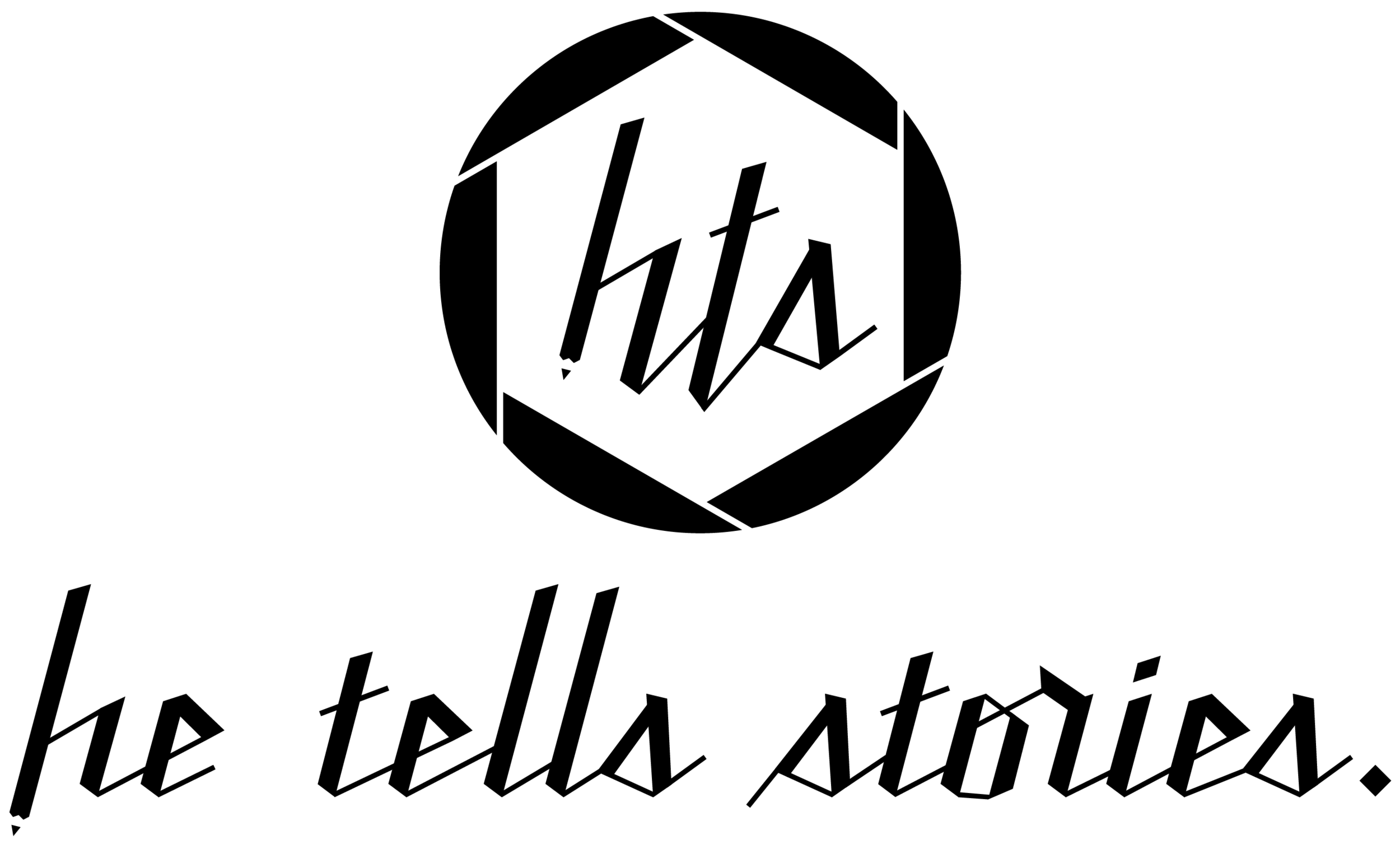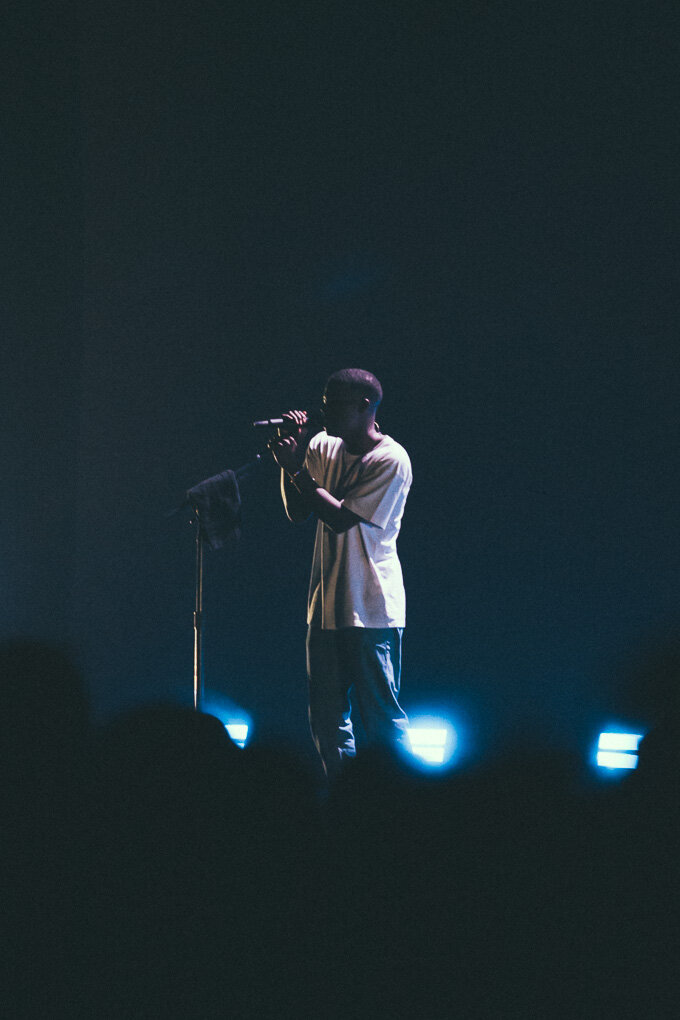Are You Okay, Daniel Caesar?
Daniel Caesar at The Shrine Auditorium in Los Angeles | Aug. 27, 2019 | all photos by Charde Kelly
I first started feeling a little concerned about Daniel Caesar around spring 2018. When you’re as hot as he was—coming off the release of a beloved fall ’17 album Freudian, one would assume that’d he’d be anxious to capitalize on his popularity by welcoming all press opportunities. As editor at Flaunt Magazine at the time, I reached out to his team to see if he wanted to be featured in our upcoming issue.
Crickets. Silence.
When his team finally did respond, I learned that Daniel did not want to be interviewed—a rare thing for acts as new as him. My immediate assumption was that maybe he’d been fucked over by his interaction with the media early on. I never truly got confirmation on that front. But that’s typically the case. Whether he was misquoted, plain ol’ lied on, or didn’t enjoy the helplessness of conducting an interview and hoping the writer correctly puts your words in context, Daniel wasn’t having it anymore. After a bit of arm-twisted and finessing, I got him to write me a note about how being labeled The Next Big Thing (our upcoming issue’s theme) made him feel. I pieced his letter into a proper article.
“As I continue to grow, so does my schedule,” he wrote me in the midst of a festival run (days removed from Broccoli Fest and weeks away from Coachella). “That’s honestly been the hardest thing for me to wrap my mind around. When I’m in my room with my guitar, that’s definitely when I’m in my safest space. I’ve gone from being able to hang out all day there to having to wake up in the wee hours of the morning to board a flight or hop on a tour bus.”
The whole thing pretty much read like he was the kid who got on a roller coaster hoping it’d feel like a Merry-go-round, but sure enough was reaching for his barf bag after one too many dip and twist combos.
The summer came and went. Then the fall and winter. No interviews. Just one song ("Who Hurt You?”) quietly released. And social media posts (including a Instagram Live moment in March that surely didn’t encourage him to be more social afterwards) were infrequent.
It wasn’t till the bottom of June that we heard from Daniel properly. He announced that his Case Study 01, a new album would drop soon. And when it did days later, it confirmed much of what I thought.
“Wanted to know what it felt like for them to like me,” he sings on “Frontal Lobe.” “Now I know, I gotta say, it's mighty frightening/ Wanna use it, use my frontal lobe/ But these feelings took this shit around the globe/ God, I'm sick and tired of always feelin' lonely.”
His singing ability has afforded him the opportunity to travel all over the world, to be a flourishing musician. But for a songwriter whose stories revolve around matters of his heart, it’s obviously quite draining to have listeners devour your output, and then maybe its creator.
Case Study plays as if it’s the audio captured during an exploration of self. For 10 songs Caesar yearns for peace of mind while knowing it’ll be taken away shortly after its arrival (“Entropy”), jadedly reflects on love (“Complexities”) and leaves several clues that not even his tried and true cocktail of pen, paper and melody can help him out of the rut he’s in.
“This music shit's a piece of cake,” a blue Daniel sings on “Superposition” before adding “The rest of my life's in a state of chaos.” On “Too Deep to Turn Back” he asks “What else does life have to give but the pain generated inside our own brains? It's a sick game.”
It’s a lot.
In the minor promotion he did for the album, Daniel posted visuals of him dressed as an astronaut and an explorer of empty worlds on his socials.
For someone who catapulted into stardom as he did (“Get You” and “Best Part” are the rare, timeless gems that currently play as the last song on prom night and on Adult Contemporary radio waves), it’s only fitting that he feels like an alien. Still though, it always bums me out when people who are professionally successful—especially in the art space—aren’t enjoying it. Like Elton John says on “Rocket Man,” “It’s lonely out in space.”
Caesar seems to be embracing the melancholy on tour. My wife and I caught him in Los Angeles at the Shrine Auditorium at the end of August. He stood center-stage, his background singers no less than 20 feet away to his left and right. His guitarist, drummer, and keyboardist played from behind a backlit screen that projected their images as silhouettes. It was like Daniel was alone with company. He sounded marvelous throughout. On several occasions the ease, beauty and muscle he sang with lifted The Shrine clean off the six acres of land it’s planted on. That’s what it felt like, at least.
Nonetheless, it was kind of sad. He too spent the bulk of the 90-minute show with a spotlight spraying the back of his head—his face rarely revealed to show the crowd whether he was enjoying himself up there. He did appreciatively thank the audience for attending—even returned for an encore.
What he did post show is anybody’s guess. Were there fun times? With much to do the next day and a baby to wake up with, we skipped out on the afterparty. Maybe Daniel drank a bit, laughed with real friends and went into the night with serenity. I’d like to believe that after 6000 fans validated him externally with applause and cheers, he went inward to service internal issues. Who knows?
I invited my friend and photographer Charde to shoot the show. Most people don’t know how the rules of concert photography go most times. Typically, you can only shoot the first three songs of an artist’s set. And some venues, like The Shrine, don’t have proper photo pits, meaning lensemen must shoot from a distance. Daniel’s show was minimally lit. That resulted in the photos we have here: grainy images starring a hardly discernible Caesar. When I first got these my magazine editor mind panicked: Ugh, I’ll have to scrap these and search online for older concert pictures from before he went dark. Then I thought about Case Study 01’s through-line and what I saw with my own eyes that night. Yeah, these pictures are perfect.


